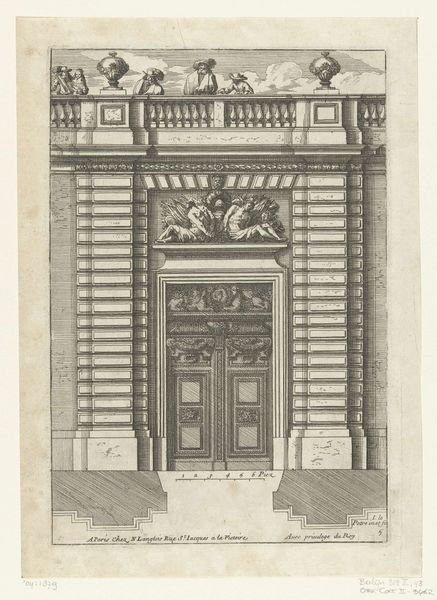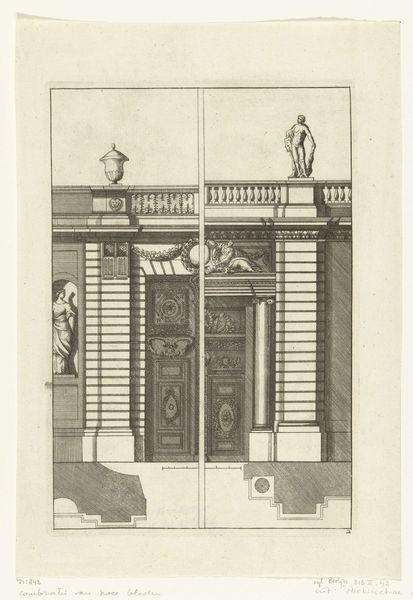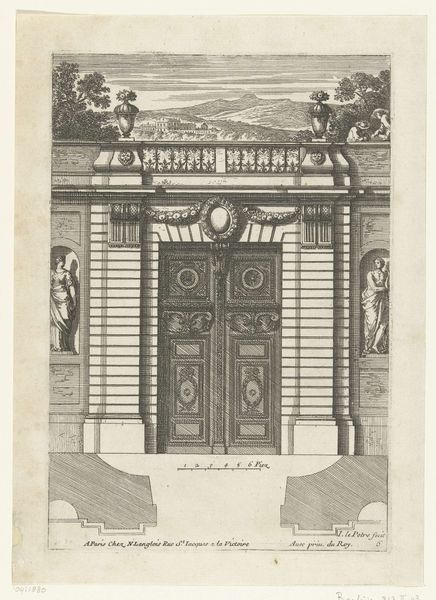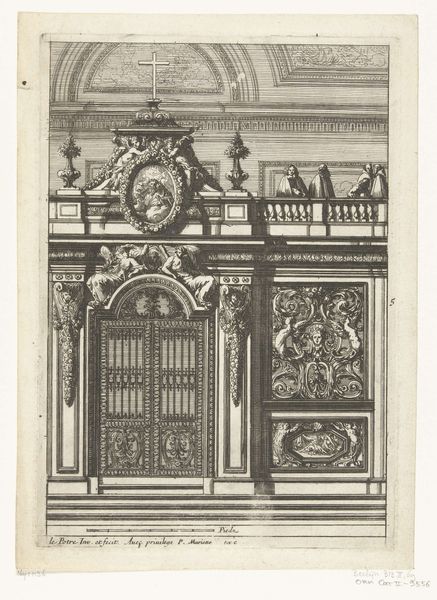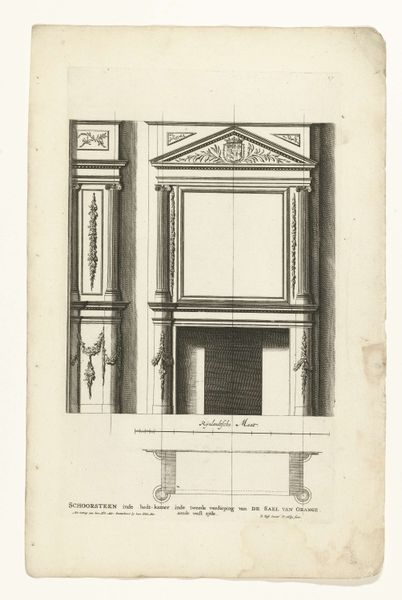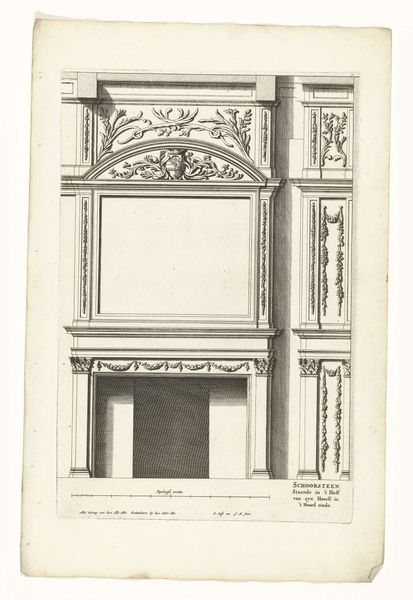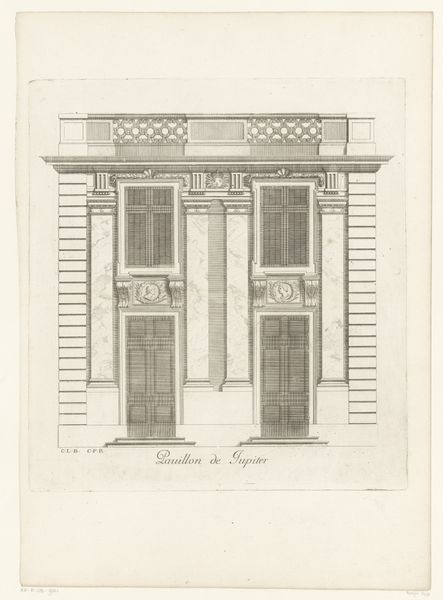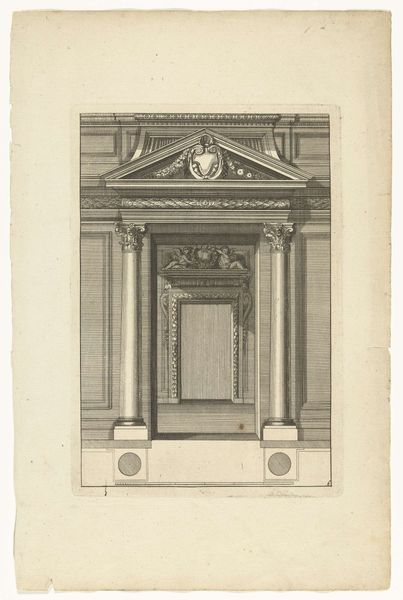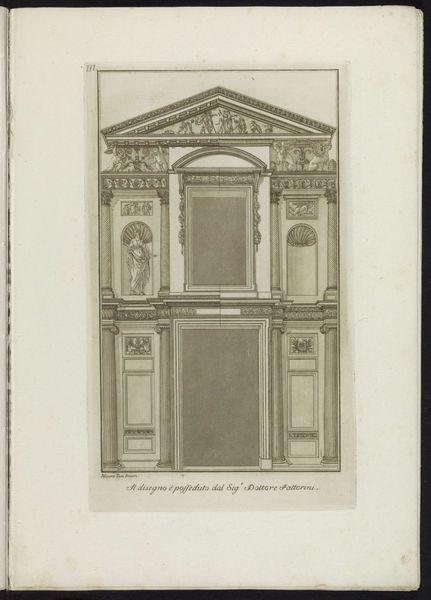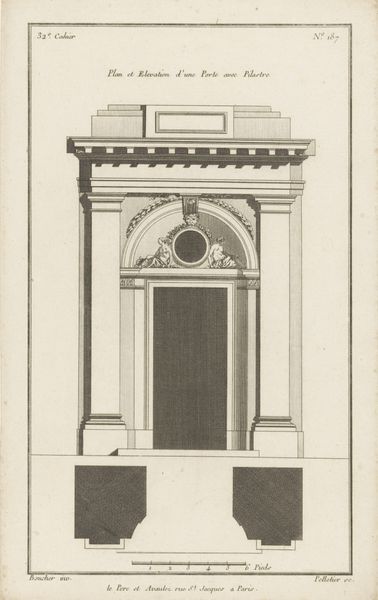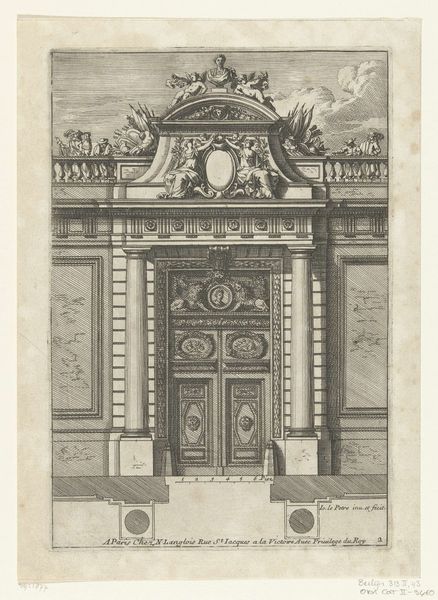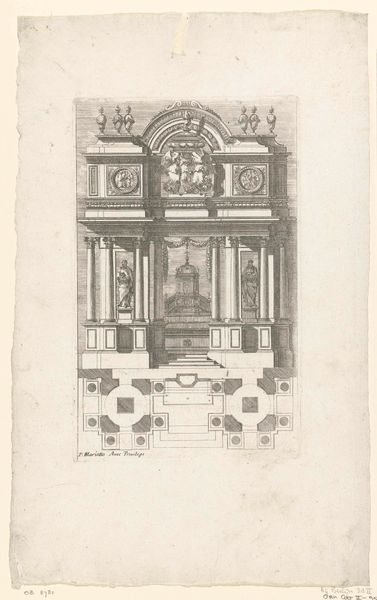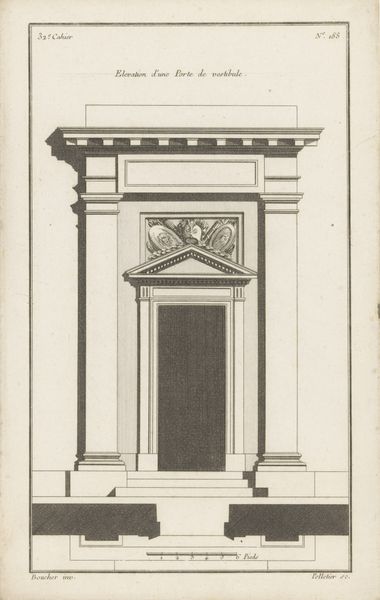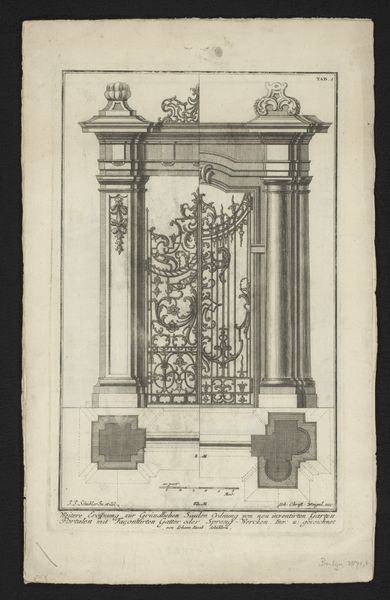
print, engraving, architecture
#
baroque
# print
#
line
#
engraving
#
architecture
Dimensions: height 213 mm, width 146 mm
Copyright: Rijks Museum: Open Domain
Jean Lepautre created this print of a portico with two Ionic columns sometime in the mid-17th century. Lepautre was an engraver and architect working in France during a period of great state building. Prints like this one played a crucial role in shaping the visual culture of the era. The image celebrates classical architecture and design, referencing ancient Greece and Rome to legitimize the reign of the French monarchy. By incorporating classical motifs, the architecture implies a connection between the French monarchy and the historical legacy of great empires. The statues atop the portico further underscore this theme. The image doesn't critique the institutions of art, but rather, it's a visual tool that supports them, suggesting a self-consciously conservative worldview. To better understand the print's significance, historians consult a range of sources, including architectural treatises and records of royal commissions. Through careful study, we can better understand how art and architecture reflected and reinforced the social hierarchies of 17th-century France.
Comments
No comments
Be the first to comment and join the conversation on the ultimate creative platform.
